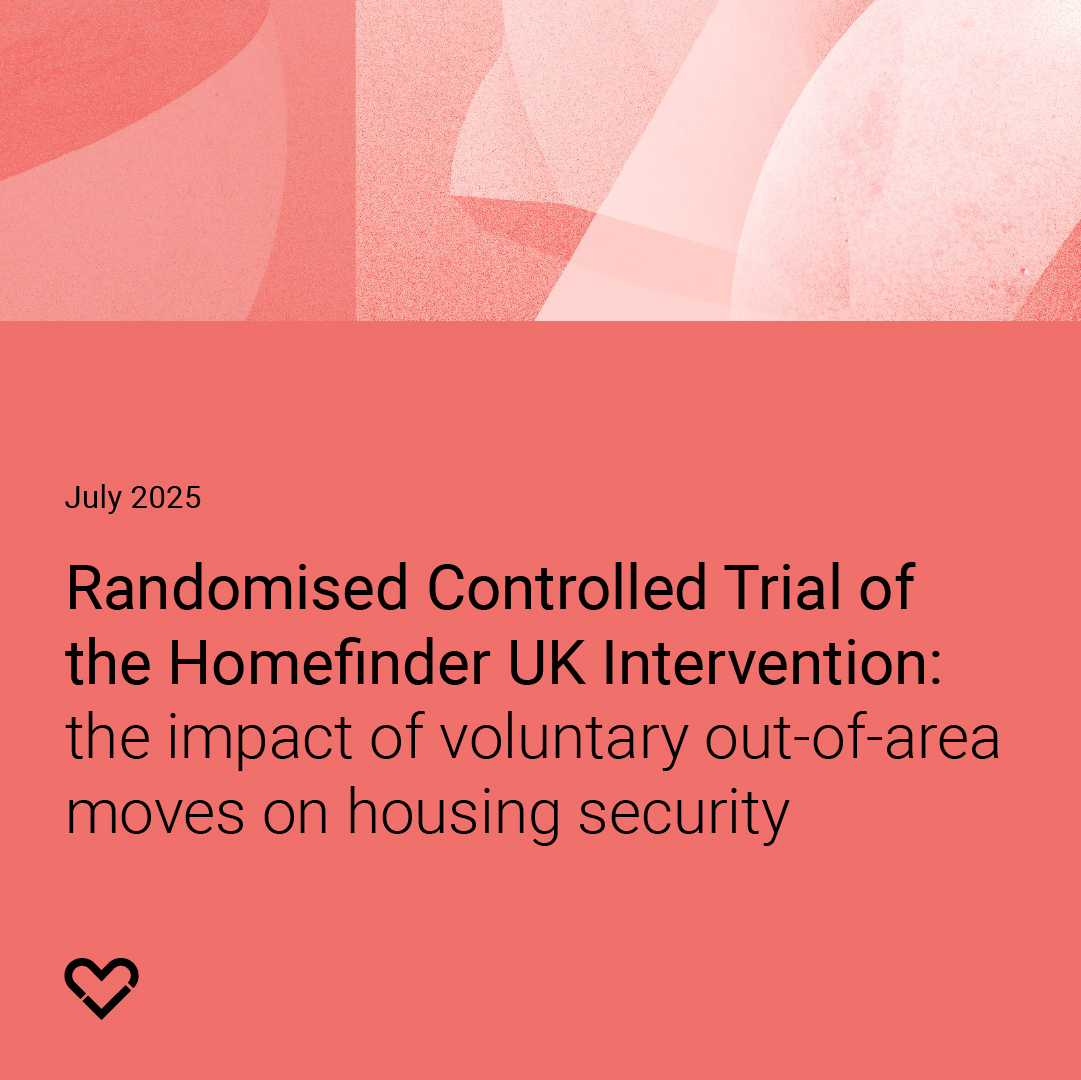Homefinder UK Intervention: the impact of voluntary out-of-area moves on housing security
About
Homefinder UK (HFUK) is a national housing mobility scheme designed to help individuals and families who are at risk of homelessness—or already experiencing it—voluntarily move out of high-cost, high-demand areas (like London) to lower-cost, lower-demand areas across the UK.
The trial
A randomised controlled trial (RCT) of 262 participants was conducted between July 2022 and June 2024 to rigorously evaluate the impact of HFUK on housing security and related outcomes.
Key findings
Although Homefinder UK (HFUK) is designed as an out-of-area mobility scheme, very few participants actually relocated during the trial. Most participants assigned to the intervention group reported receiving limited support from HFUK.
The evaluation measured six key outcomes—housing security, social connectedness, physical health, mental health, employment, and financial security—but found no statistically significant improvements for those assigned to receive the intervention. This was expected, as very few participants moved out of area, and most reported receiving limited support.
Interviews revealed widespread housing instability, poor living conditions, and frustration with HFUK’s service. Participants consistently reported:
- Minimal contact with HFUK staff
- Inability to access suitable properties
- Confusion about how the service worked
- Mismatch between expectations and actual support received
Despite this, many participants remained hopeful that HFUK could help them secure stable housing, which underscores the urgent demand for more effective support mechanisms.
Participants who were technically eligible and initially willing to relocate often set conditions for relocation (e.g. job opportunities, school access, health needs, or proximity to support networks). This highlights the complexity of voluntary relocation decisions, particularly in the context of housing insecurity.
Recommendations in brief
As LAs pay for access to HFUK, they should review whether applicants are receiving the level of support contracted and expected. The evaluation found that participants in the trial perceived little to no support from HFUK.
HFUK should assess why the intervention was not delivered consistently by staff, as specified—which includes offering personalised case management and support in identifying and applying for properties in lower-demand areas. The evaluation found a considerable variation in the level of support received as perceived by participants.
HFUK should strengthen communication at the outset to align applicants' expectations with the actual service. Interviewees often believed HFUK would resolve their housing crisis and felt let down by the limited engagement and property availability on the website.
HFUK’s website was a common source of confusion and frustration. This included reports that the website had few listings available, properties which had eligibility restrictions, and challenges with the navigation overall. HFUK should clarify the role of its website, ensure it is regularly updated, and better explain how applicants can engage with listings.





.jpg)

